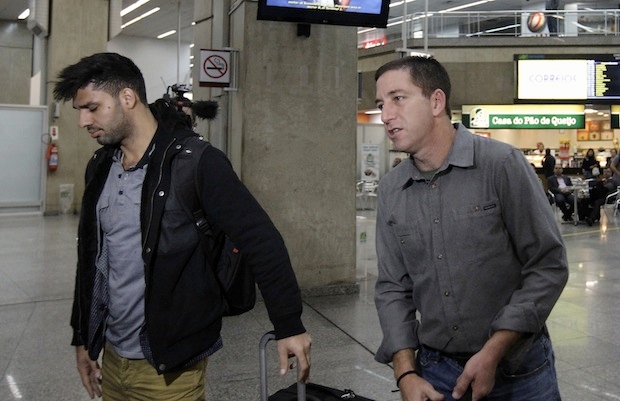The political fallout from the detention of David Miranda is as interesting as the rights and wrongs of the case itself, as it exposes a fault line in the Conservative party between civil libertarians who are instinctively wary of state power, and those on the other side who think the state did exactly the right thing in this instance and that the laws applying to Miranda’s detention are right too.
In the civil liberties corner is Dominic Raab, writing in the Telegraph that ‘on terrorism, as with so many of Labour’s laws, well-intentioned but overly broad powers have been stretched to cover wider purposes, exposing ordinary people to arbitrary interference’. Raab argues that ‘a power to protect airports from attack has morphed into a shield to save governments from embarrassment’.
Sir Malcolm Rifkind took up the fight on the Today programme this morning, arguing that the Guardian was on ‘weak’ ground in complaining about the destruction of files. He said that Guardian editor Alan Rusbridger ‘clearly did not dispute that he had no legal right to possess the files or the documents that were being discussed’. He added:
‘The fact that Mr Rusbridger was claiming – he may be right, we don’t know that, nobody else knows that – but the fact that he was claiming that the documents also existed elsewhere in another country, why should that be taken automatically as evidence of that fact? You can’t take these risks when you’re dealing with matters of such importance from a national security point of view.’
Meanwhile Yvette Cooper (who has finally emerged from the Labour ether to talk about a problem with the government created by her own administration). Unsurprisingly, she called for an inquiry (a fail-safe position for any Labour shadow) into the Prime Minister’s role in the destruction of the Snowden files held by the Guardian. But she also pointed out that other laws could have been used to question Miranda:
‘If you suspect somebody is carrying stolen goods or someone is going to put national security at risk there are a range of conventional powers that could be used, instead they chose to use the terrorism powers where it says very clearly that those should be used solely for the purpose of ascertaining if the person examined has been concerned in the commission, preparation or instigation of acts of terrorism. Those powers are really important and that’s why you’ve got to have the confidence in them.’
This is really the nub of the debate, whether or not you think the laws themselves are appropriate. Were the right laws used, and with the right checks and balances?







Comments